7 Breast Cancer Myths
Posted on October 4, 2015 by bob in Features, Health
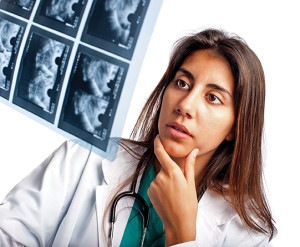 A generation ago, we barely whispered the news when a woman we knew had breast cancer. Now, thanks to awareness campaigns and pink ribbons, news reports and candid conversations, breast cancer is as talked about as the common cold. That’s both good news and bad news.
A generation ago, we barely whispered the news when a woman we knew had breast cancer. Now, thanks to awareness campaigns and pink ribbons, news reports and candid conversations, breast cancer is as talked about as the common cold. That’s both good news and bad news.
“Women are very active around this issue,” says Debbie Saslow, Ph.D., director of breast and gynecologic cancer for the American Cancer Society. “There is a lot of information out there. Unfortunately, some of the data can be misleading and inconclusive and it just gets out there in the form of myths.”
Myth: Wearing a bra causes breast cancer
This belief gained steam after a book published about 12 years ago suggested that bra straps impede drainage and circulation and make it difficult for the body to push toxins out of the breasts. The authors suggested that this can lead to cell changes that lead to cancer.
Fact: The bra/cancer connection was snapped once and for all in September 2014 when a study by Lu Chen, a researcher at the Fred Hutchinson Cancer Research Center in Seattle concluded that bras do not cause cancer. “Biologically, it’s not possible,” says Saslow, adding that most breast cancer is discovered in the armpit area, not the underwire area.
Myth: Wearing antiperspirant causes breast cancer
This myth has been rolling on for too many years. It suggests that parabens in the antiperspirant are absorbed through the 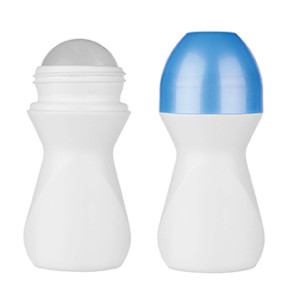 underarm area and interfere with lymph circulation, causing toxins to build up in the breast. Some researchers blame the aluminum in antiperspirants and deodorants, saying it ups estrogen levels. Excess estrogen can be a factor in developing breast cancer.
underarm area and interfere with lymph circulation, causing toxins to build up in the breast. Some researchers blame the aluminum in antiperspirants and deodorants, saying it ups estrogen levels. Excess estrogen can be a factor in developing breast cancer.
Fact: “There is no scientific evidence for the antiperspirant/breast cancer connection,” says Saslow. So if you’d rather your armpits smell pretty, you can apply deodorant without fear of it harming your health.
Myth: The radiation from a mammogram can cause breast cancer
Some people avoid this important screening test, reasoning that the radiation it emits on breasts could be inviting cancer.
Fact: “The radiation in a mammogram is miniscule,” says Saslow. “Mammograms are very safe.” There is some concern for women who have the BRACA gene (considered a breast cancer susceptibility gene) and who start getting screened when they are much younger. “If you start mammograms at a very young age, radiation risks build up over time,” Saslow says. “But these women are at higher risk for breast cancer, so the potential harm is far outweighed by the possibility of finding breast cancer.
“If you are at average risk, there’s really very little risk involved, because you’ll find way more cancers than you would ever cause because of radiation,” she adds.
Myth: Weight doesn’t affect your risk for breast cancer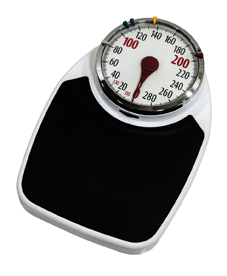
Fact: Gaining weight in adulthood raises your risk for postmenopausal breast cancer, the most common type of breast cancer, according to Saslow. If you were heavy as a child and remain so as an adult, your risk is actually a little lower. But if you were thin as a youngster and gain weight as an adult, you are putting yourself at greater risk for breast cancer—and for other diseases. Postmenopausal women who are overweight or obese have a 30 to 60 percent higher breast cancer risk than those who are lean, according to the Susan G. Komen organization.
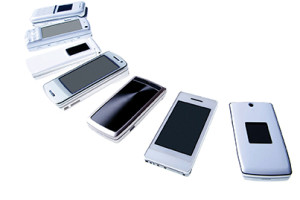 Myth: Carrying your cell phone in your bra can cause breast cancer
Myth: Carrying your cell phone in your bra can cause breast cancer
Many women who don’t want to carry a purse slip cash, a lipstick, and a cell phone into their bras on the way out. Saslow suggests that this myth grew out of the one that says that people who hold cell phones close to their heads are more likely to develop brain cancer—a rumor that has little scientific evidence behind it.
Fact: “There is no scientific evidence for this,” Saslow says. Cell phones don’t cause cancer. “But if you’re worried about it,” she adds, “don’t keep your phone there.”
Myth: My mom had breast cancer, so I’m going to get it (or vice versa)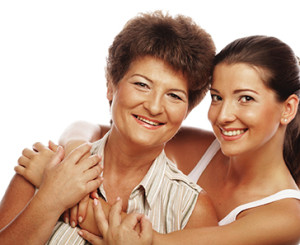
Fact: When you have a strong family history of breast cancer—with multiple close relatives on one side having gone through it—your risk is higher. But 80 percent of breast cancers are found in women who have no family history, Saslow says, making this myth a particularly dangerous one. In 5 to 10 percent of cases, there is a family history.
But even if your mother had it, it doesn’t mean that you are a ticking time bomb. Genes combine differently and interact differently with the environment. “Genetics play a role, but there must be something in the environment that triggers it,” Saslow says, adding that the biggest risk factor is “having estrogen in your breasts,” meaning: being female. So, of course, all women should be vigilant about screening to protect themselves.
Myth: A lump in your breast means breast cancer
If you find a lump in your breast, you must have it checked out, but you must not leap to conclusions about what it is.
Fact: “Most lumps are not breast cancer,” says Saslow. “There’s a chance it could be. You should absolutely follow up with your doctor. But if you are getting regular screening, most of the time cancer is detected before there are signs you would feel or see. If you suddenly notice a lump, see your doctor. You may have a cyst, a benign lump or some other minor condition. If it’s been a while since your last mammogram, alert your doctor immediately to have the lump examined.
Saslow says women should know other signs to look for: change in your nipples, a scaly, thickening of the skin on a particular area of your breast, and spontaneous nipple discharge could all be signs of cancer. Consult your doctor if you notice any of these changes in your breasts.
Grandparents.com is a lifestyle site that celebrates the grandparent community by providing trusted information about family & relationships, health & well-being, travel & retirement, and more. Follow the site on Twitter (@grandparentscom) and on Facebook (facebook.com/grandparentscom).









